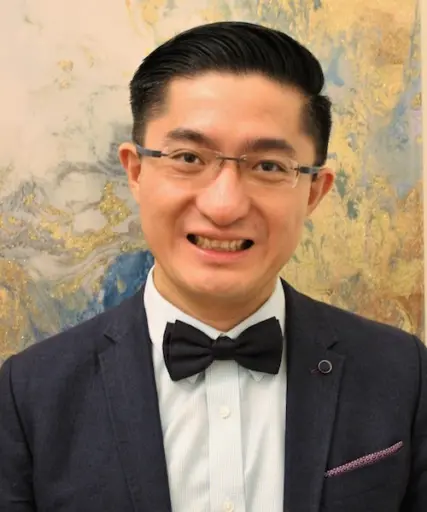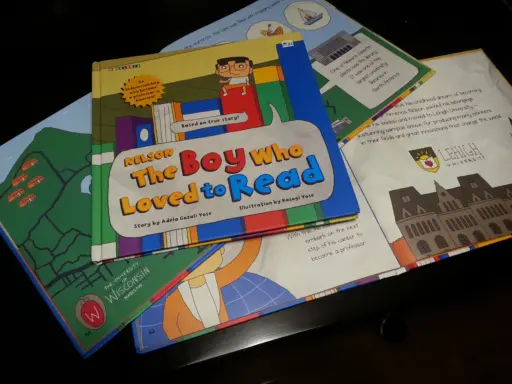As a child growing up in Indonesia during the late 1980s, Nelson Tansu (BS ’98, PhD ’03) always knew that his passion for science and natural curiosity would bring him to the United States for his education. His dream was to become a science professor.
 Nelson Tansu
Nelson Tansu
Still, Tansu was truly taking a huge step into the unknown when he decided to enroll at the University of Wisconsin-Madison.
Now, he’s thrilled that he took that step, and he remains proud to be an alum. “UW-Madison is one of the preeminent universities in the world, and it provides an incredibly supportive and healthy environment for the faculty, staff and students to learn and push the boundaries of sciences with great confidence,” says Tansu.
Without the benefit of campus visits or even websites, Tansu selected his future home based solely on what he could discern from paper college catalogues and chapters in college guidebooks.
Luckily, UW-Madison stood out; what other midwestern school in a moderately sized city boasts more than a dozen Nobel laureates? Also noteworthy were the Wisconsin Idea, the world-class faculty members, the incredible student experiences, and the alumni accomplishments.
And Tansu’s choice to become a Badger worked out very well indeed.
“It was one of the best decisions I have made in my life,” says Tansu. Tansu received his bachelor’s degree in applied mathematics, electrical engineering, and physics (AMEP)—an interdisciplinary degree between the College of Letters and Science and College of Engineering—in 1998, and then he continued to complete his PhD in electrical engineering in 2003. He is now the Daniel E. ’39 and Patricia M. Smith Endowed Chair Professor in the Department of Electrical and Computer Engineering and Center for Photonics and Nanoelectronics at Lehigh University.
As a student, not only did Tansu meet his future wife, Adela Gozali Yose ’03 (though the two didn’t begin dating until after they had both graduated and moved to the east coast), but he also encountered an environment at UW-Madison that shapes his approach to teaching, research and mentorship to this day.
“I am a product of Wisconsin,” says Tansu. “I try to bring the value of the Wisconsin experience and engineer that to my surroundings. The confidence, positive ambition, long-term vision, ethical and loyalty, and the committed and collaborative approach that I found at Wisconsin shape the ways that I handle situations in my career and life.”
One key aspect of that experience was the chance to interact with world-class professors inside and out of the classroom.
 The best-selling children’s book, Nelson, the Boy who Loved to Read, chronicles Tansu’s life story.
The best-selling children’s book, Nelson, the Boy who Loved to Read, chronicles Tansu’s life story.
Although Tansu found numerous influential mentors at UW-Madison, a few stand out in his memory, including ECE Professors Luke Mawst (his PhD advisor) and Dan Botez, CBE Professor Thomas Kuech, as well as many others in the College of Letters and Science.
“I imagined that professors would be overwhelmed, but it wasn’t true,” says Tansu. “Doors were always open for me to ask questions, whether about the class, career advice or life experience.”
It’s a philosophy that Tansu still embraces in his faculty career at Lehigh University, along with a commitment to providing the same outstanding education he received at UW-Madison.
“Students come to universities with great dreams, and it is our job as professors to grow those dreams and transform them into realities. I was fortunate to have wonderful professors and mentors at UW-Madison. It is my passion and privilege to try my best to emulate the same commitment to my students in my faculty career,” he says.
Evidence of Tansu’s commitment to inspiring young minds is evident in the best-selling children’s book, Nelson, the Boy who Loved to Read (Nelson si Kecil yang Suka Baca, in Indonesian). The book chronicles Tansu’s life story and teaches children the importance of having a strong desire to read and learn, the significance of having big dreams, and the need for having strong persistence to achieve them.
Tansu says the flexibility of his AMEP interdisciplinary degree program was essential for preparing him to pursue his dream to conduct engineering sciences and applied physics research in his career—and his coursework still comes in handy today.
“John Booske and Susan Hagness had an incredible level of detail in their lecture notes,” says Tansu. “I took their classes almost 20 years ago, and I still have their notes in my office right now.”
For his graduate degree, Tansu worked under the mentorship of Professor Luke Mawst, completing his PhD in 2003 and winning that year’s Harold A. Peterson Best ECE Dissertation Award.
Since then, Tansu has authored more than 134 journal articles and more than 280 conference publications—earning a spot in the 2018 Clarivate Analytics Highly Cited Researcher List. In addition, he also has 17 U.S. patents awarded. His contributions to III-V and III-nitride semiconductor research, key components of high-performance lasers and cutting-edge solid-state lighting technologies, merited him induction as a fellow of the National Academy of Inventors in 2016.
And even though Tansu’s travels have taken him around the globe and he already is enjoying the fruits of a wildly successful career, he still knows there is no place on Earth that can compare to Madison, Wisconsin.
“If you can succeed at UW-Madison, you can succeed in the world,” he says.